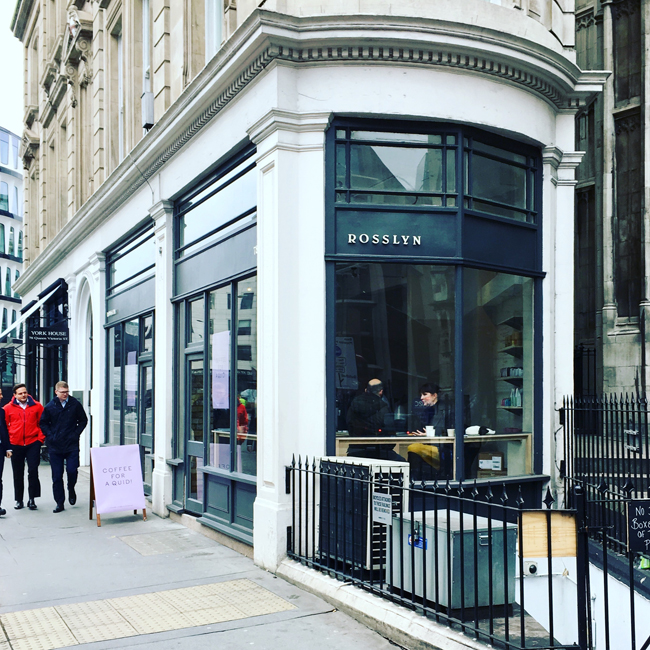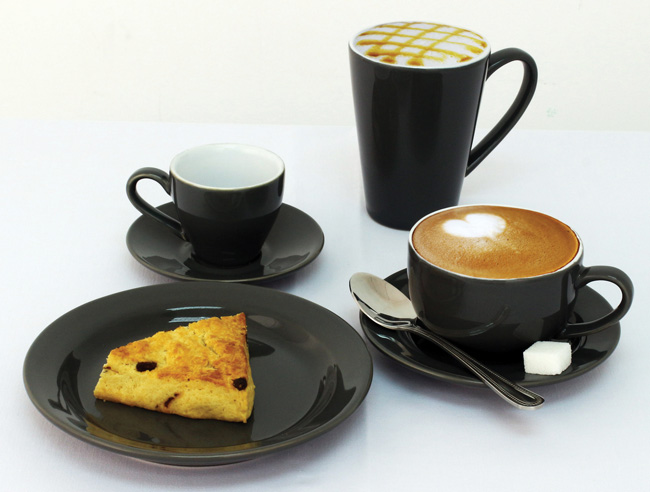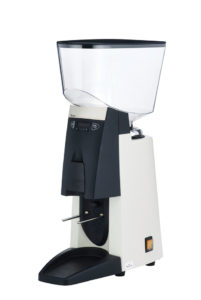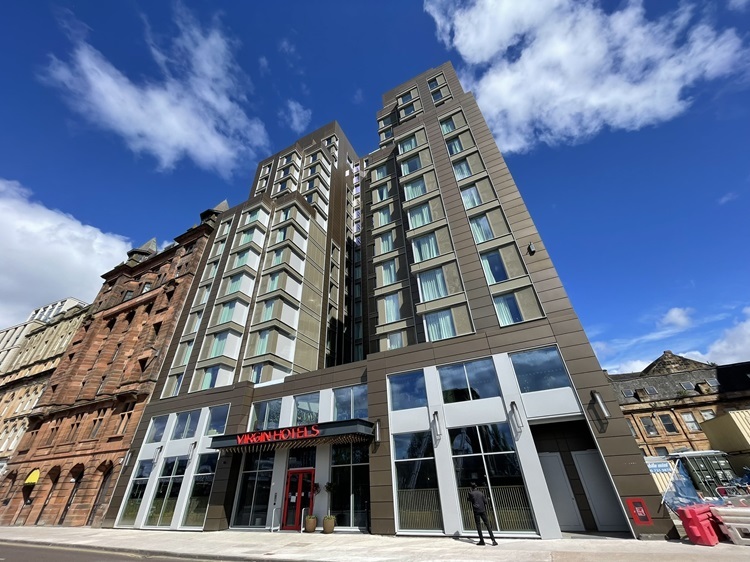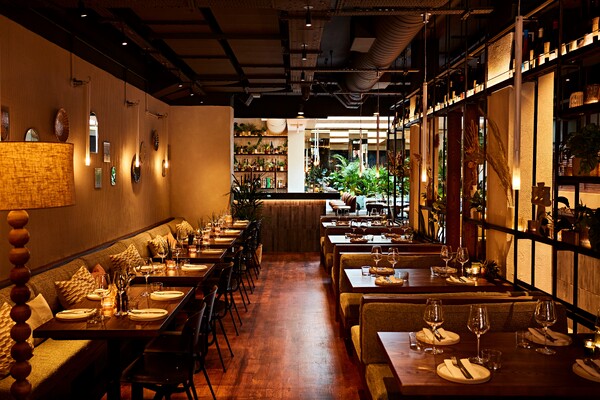The daily grind: How to give your cafe? the edge
With almost 23,000 coffee shops throughout the UK, it's vital for cafés to offer something unique, whether that's in equipment or the selection of coffee beans. Will Hawkes reports
Thatâs the sort of deal City workers appreciate and at 11am thereâs a queue. The sort of bargain theyâre getting is obvious from the machinery and ingredients on display: thereâs a £20,000 espresso machine from Synesso in Seattle, bags of coffee beans from Round Hill Roastery in Somerset and Colonna in Bath, and individually hand-thrown ceramic mugs by Melisa Dora in Honor Oak Park in south London. Thereâs food, too: focaccia from Bread Ahead, and vegan salads from Big V London, both in Borough market.
It all speaks of unusual attention to detail. âWell, weâre not reinventing the wheel,â says co-founder James Hennebry. âItâs all pretty basic stuff, but itâs the basics that make the difference.â And that applies to the human element, too: âOur coffee has already proven really popular, but thatâs not the most important thing to us â" customer service is.â
At a time when the UK has almost 23,000 coffee shops (according to the Allegra World Coffee Portalâs Project Café 2017 report), this is the sort of focus that sets you apart. In terms of ingredients, equipment, staff training and, increasingly, environmental impact, British coffee is moving into a new era. Not so long ago it was enough just to have good coffee; now everything must be up to scratch.
Rosslyn Coffee has been open for only a few days, so not everything is quite as Hennebry, 35, and his business partner Mat Russell, 28, want it. The outside needs a lick of paint, and theyâre planning a few plants to soften the environment. Whatâs exciting Hennebry most, though, is some remarkable reusable cups that are on their way to the café from Australia. Theyâre called HuskeeCups, theyâre made out of coffee husk, and Rosslyn will be their pilot shop in the UK.
âThe environmental aspect has to be addressed â" itâs very important,â Hennebry says. âWe think HuskeeCup will be environmentally sound without hindering the workflow. Everybody is conscious of being more environmentally friendly, but it canât put a roadblock in the middle of your business.â
The paper cups already in use at Rosslyn are compostable, and Hennebry says that theyâve seen a number of customers bringing in KeepCups, a barista-standard reusable cup that fits under espresso machine group heads. âThatâs a fantastic company, too,â he adds.
A recent report from parliamentâs environmental audit committee called for the introduction of a 25p âlatte levyâ on disposable coffee cups and for all coffee cups to be recycled by 2023. The problem of disposable cups is not about to go away any time soon, as seven million of them are used every week. Although they are ostensibly recyclable, very few are recycled, for a host of reasons â" chief among them a lack of adequate recycling facilities.
âThe governmentâs plans have given consumers, retailers, manufacturers and everyone involved in the supply chain an opportunity to take even more positive action,â says food packaging specialist HuhtaÂmakiâs Clare Moulson. âA very effective solution would be for more recycling opportunities to be available on the high street, which is where Huhtamaki has been focusing its attention.â
To that end, Huhtamaki has recently partnered with Gosport Borough Council in Hampshire to pilot a collection and recycling service for used coffee cups. The service is the first of its kind in the UK and will provide dedicated recycling bins at strategic sites across Gosport, including the ferry port, town hall and leisure centre. There are plans to extend collection points to high-street locations, local offices and transport providers.
The right ingredients
Rosslyn Coffee has a very interesting neighbour: Caffè Nero, one of the UKâs biggest high-street coffee shop chains. âItâs almost like a microÂcosm of the wider scene â" the small guys versus the big guys,â says Hennebry.
One of the key aspects of the best small coffee shops is the care that they give to sourcing great-quality coffee beans, and Rosslyn is no exception. It uses a special blend from Modern Standard in Tilbury for its milk coffees, Colonna in Bath roasts the beans used in Rosslynâs black coffees, and Round Hill in Somerset is responsible for the coffee used in its pour-overs. Not every customer notices this attention to detail, but more and more are becoming coffee-savvy, Hennebry says.
âNot everyone knows the difference between a natural [processed coffee bean] and a washed, but they can see what weâre doing â" thereâs an element of trust,â he says. âThe UK coffee public is becoming more and more discerning, and your standard cup just doesnât wash any more.â
Customers are also increasingly concerned about the sustainability of the coffee they drink, according to Neil Clark, co-founder of Hessian Coffee. âOperators should look for coffee with responsible, ethical credentials as well as great taste,â he says. âThankfully, these days, this is much easier to achieve, as insisting on ethicality no longer means compromising on taste and quality.â
The big players are increasingly drawn to the quality end of the market, which helps to drive up standards right across the board. Compass Group UK & Ireland, the UKâs largest food and support services business, has recently introduced two new coffee brands: Peak St and Crackle & Hum. âWeâve based these two distinct, tailored brands on insights and feedback from our customers,â says Compass marketing director Louise Pilkington.
Well equipped
The care that Rosslyn took to source its £20,000 Synesso espresso machine has been matched elsewhere in the coffee shop. For example, the bean grinders are from Fiorenzato, a company based in northern Italy. âItâs reliable, fast and comes at a very good price point,â Hennebry says. âSame with the Synesso: to me thatâs the best machine in the world.â
Good education
Perhaps the most important aspect of a coffee shopâs offer, though, is the welcome that you receive when you arrive. âWhen you walk through that door, you get a smile and are greeted,â says Hennebry. âI think that the speciality coffee business has not always been the most accessible thing. Iâll bring my mum to these shops and she says, âCan I have a latte with sugar here if I want?â People think there are all these faux pas, but we want to make sure that anyone can walk in here and feel instantly comfortable.â
Itâs important that staff understand that, although Hennebry points out: âYou can teach someone to be a barista, but you canât teach them to be energetic or friendly.â Heâs taken a lot of good advice, he says, from a series of podcasts put together by a coffee shop in Santa Cruz in California, called Cat & Cloud, which focus on the importance of training staff thoroughly.
At Buzzworks â" a hospitality group in Scotland that operates 10 sites under four brands â" Lido, Elliots, House and Scotts â" barista training is paramount. âStaff training is at the core of our company,â says David Bryce Howie, the companyâs bar training manager. âMatthew Algie, our coffee partner, helps us with this by allowing us to send baristas to its training academy to learn and master skills from some of the best in the country. Back at BuzzÂworks they can then pass on their newly developed skills and knowledge, which results in a highly skilled barista team throughout the company.â
Hereâs to the future
All being well, weâre likely to hear a lot more from Rosslyn. The founders hope to open two more sites before the end of the year, although the focus is now on making sure people come back next week, when coffee will no longer be £1. âWeâll see how we go on Monday,â Hennebry says. âOnce theyâve tasted our coffee, weâre pretty confident theyâll come back.â
Suppliers
Fiorenzato
www.fiorenzato.it/en
Hessian Coffee
www.hessiancoffee.com
Huhtamaki
www.huhtamaki.com
HuskeeCup
www.huskee.co
KeepCup
uk.keepcup.com
Melisa Dora
www.melisadora.com
Rosslyn Coffee
www.rosslyncoffee.com
Santos Barista (Nisbets) www.nisbets.co.uk
Synesso www.synesso.com



